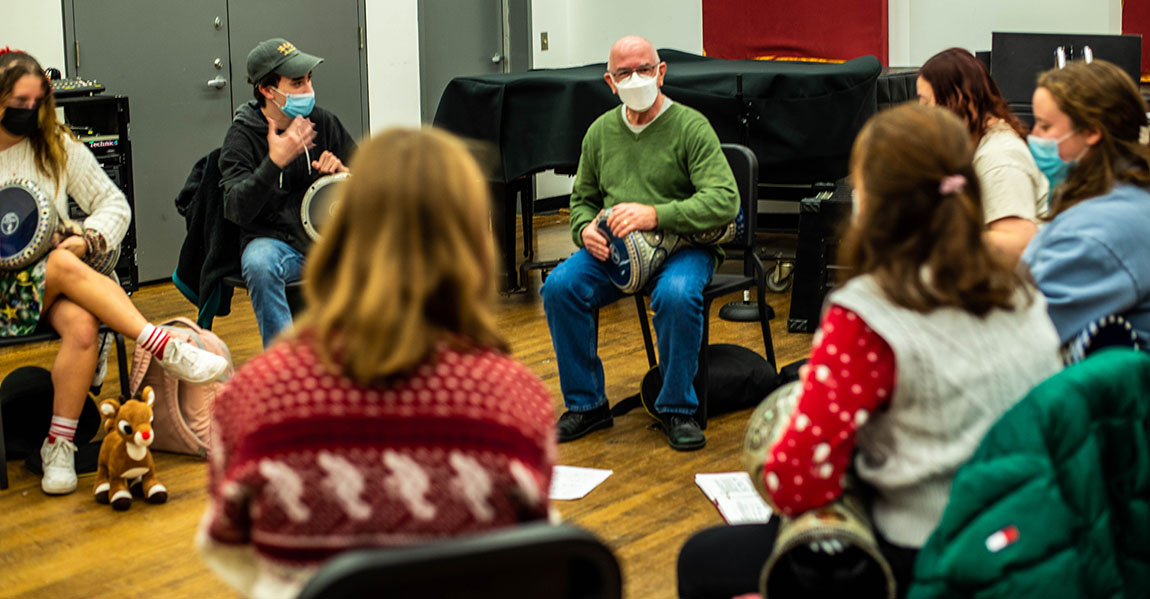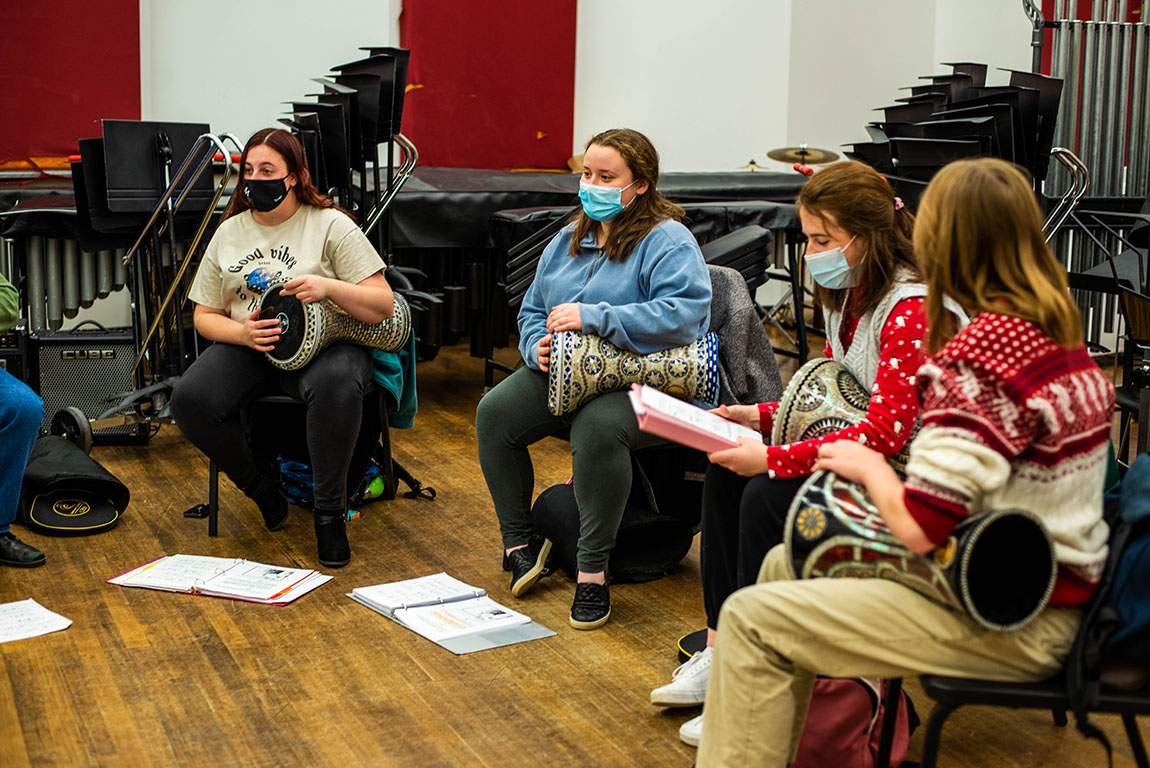Department of Music Curriculum Undergoes Anti-Racist Revision
The foundational courses no longer center Western European compositions and composers, and students can choose from a variety of new courses on power structures in music.By: Meghan Kita Monday, December 13, 2021 09:59 AM
 Professor and Chair of Music Ted Conner (center) playing darbuka with his Engaging with Music I class. Photos by Rachel Farrow
Professor and Chair of Music Ted Conner (center) playing darbuka with his Engaging with Music I class. Photos by Rachel FarrowEarly in the semester, Professor and Chair of Music Ted Conner brought out a darbuka, a goblet-shaped drum, in his Engaging with Music I class. Dana Livian ’25 recognized it immediately, though in her Iranian community on Long Island, it’s called a doumbek. The instrument was commonplace at community events and weddings throughout her youth, and now, she and her classmates would be playing it to learn about rhythm and improvisation. Later, when she told her family about the experience, her grandparents said, “We have one in the attic—do you need it?”
Engaging with Music I is the first of two new foundational courses for music majors and minors who previously wouldn’t have seen this instrument outside an elective. The Department of Music recently revised its entire curriculum to de-center the Western European compositions and composers that music programs have historically prioritized.
“Having general music classes that only focus on 100 years of Western European music and one world music class covers everything else, that doesn’t make any sense logically,” Livian says. “Even in a world music class, I’d expect maybe we’d be learning about [the darbuka]. I wouldn’t expect to be playing it. It’s really cool and really exciting.”

The department had been considering revising the curriculum, which used to begin with the required courses Western Music Theory and Music History, for years. In the summer of 2020, music faculty formed an anti-racism reading group, meeting every two weeks from mid-June until November, and that set the stage for the curricular revision. Conner worked with Professor of Music Paul Murphy and Assistant Professors of Music Andrew Ardizzoia, Kassandra Hartford and Christopher Jackson to rethink the curriculum last winter into this spring.
Engaging with Music I and II are each broken into thirds: one focused on non-Western music, one on vernacular music (such as jazz, pop and rap) and one on European art music. After those two courses, students will take Methodologies and Epistemologies in Music, which deals with how ideas and knowledge about music are constructed, and Theory and Practice in Western Tonal Music. Also new are courses on power structures in music, which consider how race, gender, religion and economic structures affect the intersections between music and culture.
“If a student is interested in doing the deep dive into Western music, they can certainly still do that. They’re just going to get a healthy dose of music outside the Western tradition,” Ardizzoia says. “Prior to this, anything outside the Western tradition was additive. This is much more integrated.”
The new curriculum was approved at a faculty meeting in March. Typically, changes in curriculum involve a fair amount of faculty discussion, Conner says. No one questioned the music faculty. In fact, he recalls one faculty member saying jokingly, “You realize we’re going to plagiarize what you’ve done here.”
Students have been supportive of the department changing its curriculum, and now, they’re helping to shape it in real time. Ardizzoia credits Muhlenberg students for being open to trying new things and providing feedback. One benefit of the new foundational courses is that they’re much more flexible than the ones they replaced, and that will allow faculty to add and subtract components based on changes in the field and student interests.
“It’s going to be a several-year process to realize all the potential we have here,” Conner says. “We don’t want a fixed structure that’s going to limit us, as faculty or students.”
Read more stories about Academics | Diversity & Inclusion | Music |

